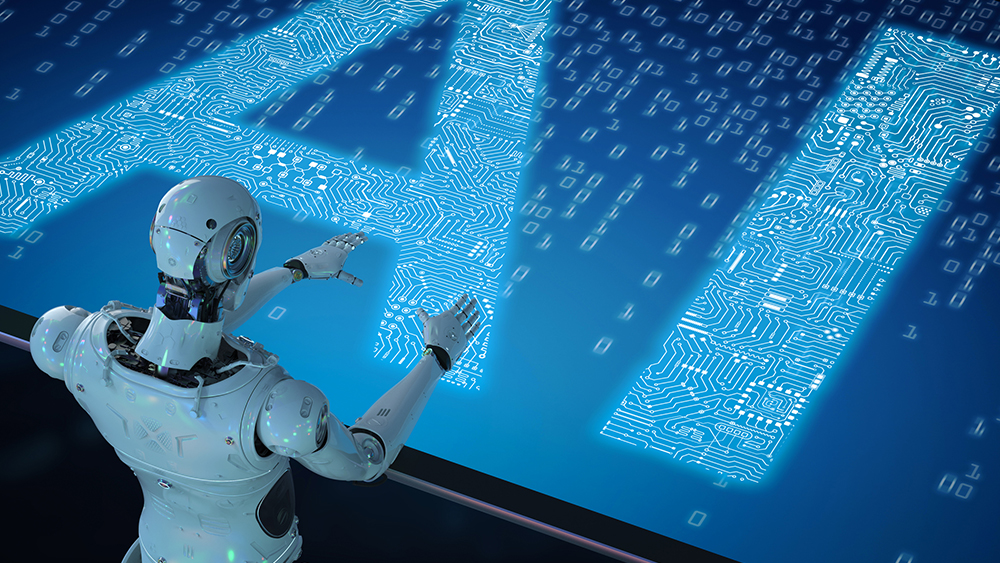How Artificial Intelligence is Changing the World
Artificial intelligence has long been a source of fascination thanks to lofty projections from the mid 20th century and its portrayal in media. Although we haven’t seen the world-changing breakthroughs many anticipated in the early days of computing, there’s no doubt that AI is transforming our lives, and these changes are only expected to accelerate in the future. Here are some of the ways AI is changing the world and what to anticipate going forward.
Healthcare
Computers have long been used in healthcare, from imaging tools to record-keeping. However, artificial intelligence shows tremendous promise in terms of diagnosing diseases and recommending treatments. Although our knowledge of medicine has improved dramatically, it’s difficult for doctors to sift through all of the medical reports and studies to uncover what’s affecting a patient. AI systems, on the other hand, can sort through data in seconds and give doctors valuable insight. Furthermore, AI systems can use new Big Data techniques to find signals in the endless statistics from modern studies.
Customer Service
It’s no secret that companies are reluctant to invest in human customer service representatives, as they’re expensive. While automated phone systems and interactive websites have become commonplace, users’ experience has typically been mediocre at best. Thanks to AI, however, automated customer service systems have become far more capable, letting companies offer an improved customer experience. By recalling data instantly and learning from past customer interactions, these systems offer speedy responses and improve with each interaction. Humans will still play a role in customer service, but expect automation to become better and more common over time.
Agriculture
While you may not expect it, artificial intelligence is changing the world of agriculture. The amount of land available for farming is limited, and efficiency is important for feeding a growing world population. Although many don’t see a connection between agriculture and computers, AI has a major role in how farmers utilize land. By measuring soil conditions and moisture using sensors, AI systems can prescribe guidance for making crop yields higher. In addition, sensors and cameras can be used to detect pests, disease, and other major threats to farms. This allows farmers catch potential problems quickly and respond accordingly.
How The Search Algorithm Affects Your Site
Transportation
Public transportation is invaluable for many people, but there’s one cost that has long seemed unavoidable: Human vehicle operators. Thanks to recent artificial intelligence developments, however, we may enter an era where vehicles operate themselves in most circumstances. Already, AI systems are being used to guide trains, and more sophisticated airplane AI systems help pilots operate more safely. The biggest change, however, is self-driving cars, which use AI to comprehend what’s happening and how to drive safely. Being able to hop in a vehicle and focus on other tasks can help make daily commutes a productive time, and the cost of hiring a vehicle may drop significantly when there’s no need to pay a driver.
Education
Teachers and professors will always play a critical role in educating their students. However, artificial intelligence is likely to offer new and powerful educational options. One-on-one teaching is the most effective way to relay new concepts, but hiring an individual teacher for every student is simply not affordable for most schools. On the other hand, virtual tutors can offer an experience similar to individual tutors at a fraction of the cost. Virtual tutors are also great at trying out new strategies for teaching concepts and finding out what works best. Teachers can benefit as well by finding out which approaches to teaching topics seem to be most effective.
Surveillance and Law Enforcement
Cameras are cheaper than ever before, and image recognition has improved dramatically in recent years. Much of these efforts have improved facial recognition technology. This allows computer systems to automatically trace where individuals are in real-time and store this information indefinitely. This makes it easier for governments to track individual movements, and it also makes it possible to track unexpected large gatherings and respond appropriately. Although these technologies have obvious advantages for law enforcement, they could also be used by totalitarian governments to suppress dissent and target individuals and groups. Furthermore, questions of individual liberties will take center stage in any debate. Regardless, the technology has already arrived and will only improve in the future.
Artificial intelligence is often difficult to see on a day-to-day basis. However, it’s more ubiquitous than ever before, even if its impacts are largely invisible. Although there are some potential drawbacks to AI technology, it promises to transform nearly every industry in the coming years and decades, and it’s worth tracking its progress as it transforms our lives in ways both big and small.

